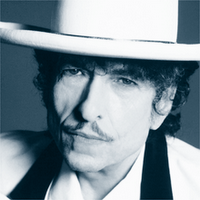
Mani Ratnam's Madras Talkies' website is up and running. This is only a temporary page, but worth a visit anyways.
Movies, Mindspace and Me

 Yesterday was Bob Dylan's birthday. He was born on May 24, 1941. Belated wishes Dylan. I worry you wont' have many more of those coming your way now.
Yesterday was Bob Dylan's birthday. He was born on May 24, 1941. Belated wishes Dylan. I worry you wont' have many more of those coming your way now. Iqbal is in many ways the first of its kind movie in Hindi. I don’t remember seeing a Hindi or Tamil sports movie. Lagaan was not about sports really, and if Nagesh Kukunoor is to be believed neither is Iqbal. He claims it’s about the human spirit, but the only spirited performance in the movie comes from Nazeeruddin Shah. The rest of the cast just pale in comparison.
Iqbal is in many ways the first of its kind movie in Hindi. I don’t remember seeing a Hindi or Tamil sports movie. Lagaan was not about sports really, and if Nagesh Kukunoor is to be believed neither is Iqbal. He claims it’s about the human spirit, but the only spirited performance in the movie comes from Nazeeruddin Shah. The rest of the cast just pale in comparison.



Christopher Boone, a 15-year-old living in a small town in the UK, suffers from Asperger's Syndrome, an autistic condition. He has two gifts: a photographic memory and he is a whiz at maths.
But on the negative side he just can't understand emotions. Metaphors like "He is the apple of my eye" go above his head. He finds people confusing. And because of all this, he is, in a way, an unreliable narrator.
But Christopher can't tell lies. He seems incapable of doing so. In using him as his narrator, Mark Haddon, in a light-hearted, warped and funny fashion, makes a commentary on adult relationships, particularly the failed marriage of Christopher's parents.
Christopher claims he can't tell jokes. He says he doesn't understand them. But the book itself is quite funny. Plumbing Christopher's innocence to its full potential, Haddon offers a delightful criticism of the oddities of human life.
Christopher doesn't like to be touched. He hates yellow and brown, and can't eat anything in that colour. He constantly dreams of going into outer space. Christopher loves Sherlock Holmes but hates its author Arthur Conan Doyle for his superstitious beliefs. He is investigating the murder of Wellington, the dog that lived across the street, which is gruesomely killed using a garden fork. But this investigation is really not into the murder of a dog, which is clear even as you begin reading the book. This is just a pretext to portray the life of an autistic person and of a world seen through his eyes.
For instance, Christopher often recalls his harrowing journey to France. He says that he was unable to relax like other people because he sees everything. At one time, there is a detailed description of every cow that stand in a group on a field. Christopher's memory is indeed that photographic.
The book is filled with pictures, maps, puzzles, digressions, and is a seemingly hotchpotch affair. But these are actually devices used to offer an insightful glimpse into the life of a boy suffering with Asperger's, though the disease is never mentioned by name in the book.
Christopher lives with his father, as his mother is dead (or is she?). Halfway through the book, Christopher learns who killed Wellington and why. It's then that the book really takes off and begins to talk of the things that it wanted to say in the first place.
By the time the book ends, we realise that Christopher, for all the lack of emotional IQ, innocence and naivety, is actually a model for decent and practical adult behavior.
During every election, a significant chunk of the population does not exercise its right to vote. During the last Assembly elections held in May 2001 in Tamil Nadu, over 40 per cent of the voters did not cast their ballots.
Of the over 4.7 crore voters in the state in 2001, only 59.07 per cent exercised this basic and essential right in a democracy. In the case of women, the polling percentage is even lower. Only 56.83 per cent women bothered to cast their ballots during the last Assembly polls.
Why don't people vote, especially in a state where politics is deeply etched in people's minds and popular film stars are either candidates themselves or are involved in the campaign? Mr. G.S.R. Krishnan, a Bangalore-based sociologist, explained the cynicism of the middle class towards the electoral process. "The Brahminical middle class - not necessarily Brahmins - harbours a contempt for the masses. They believe the democratic process to be quite futile and think that their opinions are of no consequence."
Ironically, it seems that the more educated a person is, the more he looks down upon the electoral process. "The higher you go up the education ladder, the more the people tend not to vote," says Mr. Krishnan.
For some like Mr. Prasanna, who is a project manager at CIOSA, a confederation of NGOs, the decision not to vote is consciously taken. Mr. Prasanna said that many background details about candidates were not easily available for voters, adding that he was not willing to "blindly support" a political party.
"Ideally, I would like to vote for a Gandhian, but am willing to vote for anybody who is honest and not corrupt. It doesn't matter whether they are from the Right of Left," he said.
Some just find the process of getting a voters' ID card just too difficult. This is particularly so in the case of bachelors and the floating population. Many, who live alone and are unable to provide a proof of residence document, are unable to get ID cards.
However, Mr. Krishnan said he would not blame the youngsters for not voting. "Politics operates essentially in two ways: in the realm of ideas and as an existential device providing solutions for day-to-day problems. The product of this age and milieu, like say, the call centre crowd, is self-centered and doesn't face any existential problem. Also there is no One Big Political idea today as there was Marxism a few decades ago. So youngsters are not attracted to politics," the professor of sociology added.
However, Mr. Krishnan cautioned against "theorising too much" and said that the people who don't vote were not following a plan. "There is no set pattern in the percentages. It's an accumulation of silly reasons and minor inconveniences. Perhaps the voting booth may be too far. Or the person might be feeling too lazy after lunch. All the people who don't vote do not sit together and decide not to vote."
Mr. Krishnan, however, hastened to add that the decline in the number of voters was not indicative of a decaying democracy. A case in point, he said, was the Emergency. "Only at a time of a great political upheaval like the Emergency does the middle class rudely feels the heat of street realities. When your family is hauled into a police station and questioned, when you are beaten up, you begin to question the political process. This was why middle class crowds thronged the Janata Party offices after the Emergency. This is why they offered their cars for party work," Mr. Krishnan said.
Tamil Nadu goes to polls on May 8 the results of which would be declared on May 11.
This is an article I wrote for Deccan Chronicle, where I work, and was re-written. Unfortunately, I lost that copy. I am just explaining why this blog is so dry.